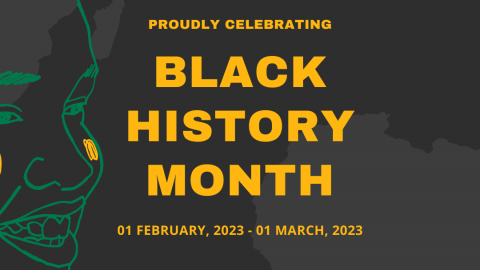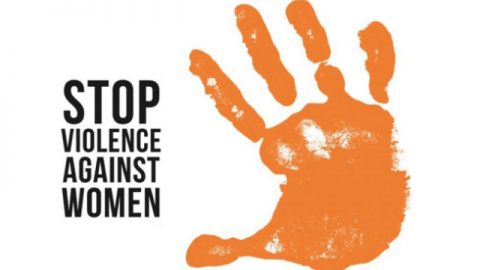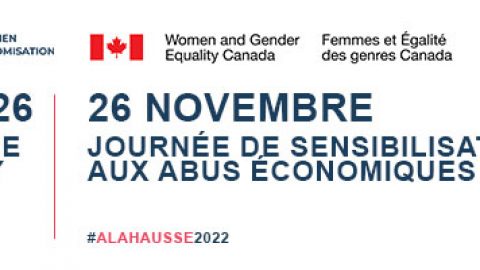International awareness can prevent trafficking coerced debt, economic abuse and raise economic empowerment
World Day Against Trafficking in Persons raises awareness, promotes the protection of the rights of trafficking victims and encourages prevention and combatting of trafficking by the government, organizations and individuals.
There is a need for an international awareness day such as this one as Statistics Canada said 3996 incidents of human trafficking have been reported to the police from 2012-2022, along with many human trafficking cases remaining unreported.
Author and expert witness on human trafficking, Kimberly Mehlman-Orozco, said traffickers will make false promises to fulfill people’s needs in which people in areas with high economic instability may be more vulnerable to.
“When we’re talking about human trafficking, we are talking about modern slavery, and these are situations where eventually that individual’s food is controlled, their housing, their transportation, their communication, their finances, their access to health care,” Mehlman-Orozco said.
The Ontario government announced on May 30 that beginning in 2025, students must complete a new financial literacy graduation requirement as part of their grade ten math course.
Mehlman-Orozco saw this as important due to many being trafficked young but would like to see this change in curriculum combined with more evidence-based awareness of victimization.
“I think that financial literacy is important but also being able to understand contracts, understand laws that are used, understand the fact that somebody who might have nefarious intentions might seem like a very nice person and might be saying all the right things. They might be an excellent salesperson,” she said.
Mehlman-Orozco said offering financial literacy not just to children but to survivors is also vital to ensure these survivors don’t get re-victimized.
Indigenous lawyer, Naomi Sayers, said in terms of economic abuse, marginalized communities such as the Indigenous community are at a greater risk as they may interact with racism in the banking and housing systems.
“They’re going to have a lack of options for the housing systems. They’re going to have to take on a lot of debt, if they’re even able to get access to that equity, and then, if they do get access to that, they may be persuaded to take on additional debt for their abusers,” Sayers said.
The Survivor’s Lens To Human Trafficking report from August 2021 said some studies suggest that while Indigenous people make up only four per cent of Canada’s population, over 50 per cent of trafficking victims in this country are Indigenous.
The national director of The Global Alliance Against Traffic in Women (GAATW) Canada, Alison Clancey, added that there was a concern to address exploitation for international students before it could lead to trafficking by increasing the number of hours they could work per week.
“That change was increased. But then on May 1, 2024, the policy was reversed again, only permitting international students to work 20 hours a week. There was a golden opportunity to address economic instability and poverty among international students, which placed them in vulnerable situations. Unfortunately, the government didn’t seize that opportunity,” Clancey said.
Clancey said if society was more serious about addressing human trafficking, poverty reduction strategies would play a much more prominent role in an attempt to alter conditions that create vulnerability.
President and CEO of the Joy Smith Foundation, Janet Campbell, touched on economics being a big driver in human trafficking as some traffickers can make an excess of $280,000 per victim per year.
“From a victim standpoint, I would say economics certainly can play a factor in somebody’s vulnerability, but where I have seen that as a greater factor, it’s not necessarily where somebody is initially victimized,” Campbell said.
“It’s that desire for love and connection and just acceptance that plays a big role oftentimes in somebody’s early victimization. What I have seen in cases where individuals have been trafficked and then they have been able to get away many times in their journey to heal, they have economic barriers,” she said.
“As a result of those economic barriers, I have seen where they continue to be re-victimized with providing sexual services or stripping or other things like that because that is the support foundation that they have,” Campbell said.
“We have seen cases come from all economic levels of supply. And so the one thing that I think is very important for people to consider is that it could really happen to anybody,” Campbell said.
The Joy Smith Foundation focuses on youth and ensuring youth are empowered with knowledge about human trafficking as well as how others may exploit them. They have prevention workshops in schools and have programming for students that have been identified as being more vulnerable.
Additionally, the Ontario government addresses coercive debt incurred in relation to human trafficking through Bill 41.
The director of stakeholder relations and partnerships at the Canadian Centre to End Human Trafficking (CCTEHT) Ashley Franssen-Tingley said CCTEHT supports Bill 41 and wants to see other provinces show leadership on this issue as well.

“Your access to service should not depend on the province that you live in. We should be supporting folks the best that we can regardless of where they happen to be in the country,” Franssen-Tingley said.
“There’s an opportunity for municipal governments to be part of the solution too. It’s not just provincial and federal governments. Peel Police is actually the first municipality in Canada to implement an anti-trafficking strategy. There might be some opportunity for other municipal governments to be part of that as well,” she said.
CCTEHT runs Canada’s national human trafficking hotline (1-833-900-1010) which aims to connect people to services in their community or closest community that best suit their needs.
This includes supports and services, safety planning, access to financial literacy, emergency funds such as shelter and much more, with services also being offered through chat or self refer through their website.
The Canadian Centre for Women’s Empowerment (CCFWE) written submission for Bill 41 added that as Canada’s only not-for-profit organization that solely works on addressing and ending economic abuse, they strongly support the passing of this Bill 41 and are aware of the systemic financial barriers many survivors are facing even after fleeing abusive situations.
It said CCFWE is pleased to see the support of all four parties and urges the government to continue strengthening women’s financial empowerment and the removal of structural financial barriers for survivors.
The Executive Director of CCFWE Meseret Haileyesus made a speech addressing “Bill 41, Protection from Coerced Debts Incurred in relation to Human Trafficking Act, 2023” at Queen’s Park.
“The very nature of the relationship between the trafficker and the victim is one of coercive control. It is said that more than half of survivors, 52 per cent more precisely, of survivors deal with coerced or fraudulent debt,” Haileyesus said.
“Our current financial and legal systems are not set up to protect survivors accordingly. This has already been recognized by the U.S. federal government that passed a similar legislation, the so-called Debt Bondage Repair Act, or DEBRA, just last year,” she said.
“This Act prohibits consumer reporting agencies from furnishing consumer reports containing coerced debt as a result of human trafficking. In Canada, Bill 41 is a timely and crucial example for other provinces to follow. By addressing coerced debt and freeing survivors of this undue burden, you will also contribute to promoting economic equity and women’s economic empowerment,” Haileyesus said.
When Bill 41 is passed, it means that creditors will be prohibited from knowingly attempting to collect debt arising from human trafficking, these debts will not be reported on credit reports and creditors will be forbidden from considering these debts when survivors apply for credit in the future.
Article Written By: Julia Vellucci, CCFWE social justice writer









